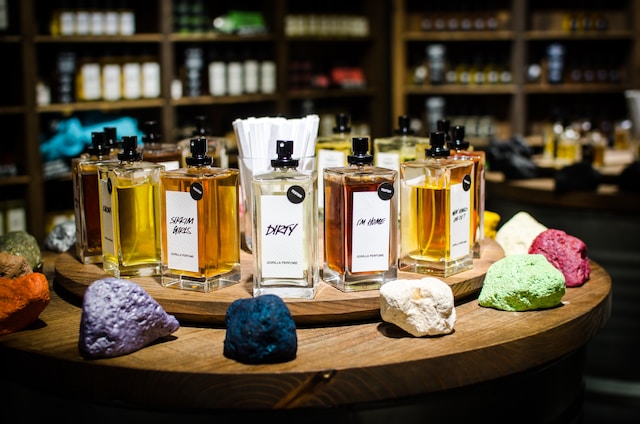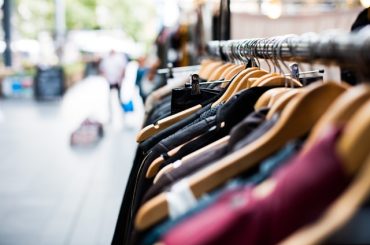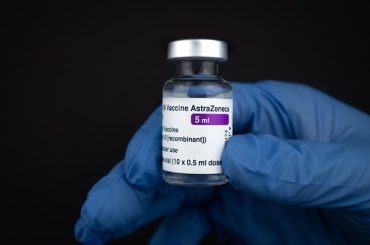Before we dive deep into the PESTEL analysis, let’s get the business overview of Lush Cosmetics. Lush is a UK-based cosmetics retailer known for its ethically produced and often handmade products, including bath bombs, bubble bars, face masks, and soaps. Established in 1995 in Poole, Dorset, by Mark Constantine and Liz Weir, the brand has expanded globally with shops in numerous countries.
Key Features and Business Philosophy:
- Ethical Stance: Lush is renowned for its strong ethical values. The company is against animal testing and ensures that all its products are cruelty-free. They actively advocate against animal testing in the cosmetics industry.
- Fresh and Handmade: Lush emphasizes the use of fresh ingredients. Many of their products are handmade, and stores often showcase this aspect through in-store demonstrations.
- Environmentally Conscious: Lush focuses on reducing packaging, with many products sold “naked” or without any packaging. For products that do require packaging, the company often uses recycled or easily recyclable materials.
- Transparency: Lush is open about its ingredients, often displaying ingredient lists prominently on products and in stores.
- Vegan and Vegetarian Products: While not all Lush products are vegan, a significant number are, and the rest are vegetarian.
- Innovative Products: Lush is known for its innovative range, especially the bath bombs, which have become iconic to the brand. They regularly release limited-edition products and seasonal ranges.
- Financial Performance 2022: Brand turnover (Group turnover as reported plus turnover from joint ventures, associates, licensees, and franchises of £179.2m) in the year was £836.3m which is an increase of 7.5% on 2021 and a 10.5% increase when converted at consistent exchange rates.
Here is the PESTEL analysis of Lush Cosmetics
A PESTEL analysis is a strategic management framework used to examine the external macro-environmental factors that can impact an organization or industry. The acronym PESTEL stands for:
- Political factors: Relate to government policies, regulations, political stability, and other political forces that may impact the business environment.
- Economic factors: Deal with economic conditions and trends affecting an organization’s operations, profitability, and growth.
- Sociocultural factors: Relate to social and cultural aspects that may influence consumer preferences, lifestyles, demographics, and market trends.
- Technological factors: Deal with developing and applying new technologies, innovations, and trends that can impact an industry or organization.
- Environmental factors: Relate to ecological and environmental concerns that may affect an organization’s operations and decision-making.
- Legal factors: Refer to the laws and regulations that govern businesses and industries.
In this article, we will do a PESTEL Analysis of Lush Cosmetics.
PESTEL Analysis Framework: Explained with Examples
Political
- Regulations on Cosmetics Production: Lush operates in various countries, each with regulations on cosmetics’ safety, production, and labeling. Compliance with these standards is crucial for Lush to maintain its operations in those regions.
- Animal Testing Policies: One of Lush’s core principles is its stance against animal testing. Political regulations supporting or banning animal testing in cosmetics can significantly affect Lush’s operations and advocacy initiatives.
- Trade Policies and Tariffs: Being an international brand, Lush imports and exports products across borders. Political decisions around trade agreements, tariffs, and customs duties can impact the company’s cost structure and supply chain.
- Stability of Operating Countries: Political stability in the countries where Lush operates is essential. Civil unrest, political upheavals, or changes in governance can disrupt their operations.
- Taxation Policies: Tax regulations and policies in various operating countries can impact Lush’s profitability and pricing strategies.
- Political Activism and Advocacy: Lush is known for its active stance on several social and political issues. The political environment’s receptiveness or resistance to such advocacy can influence the company’s campaigns and image in specific markets.
Economic
- Global Economic Climate: Economic downturns or booms in critical markets can influence consumers’ discretionary spending habits. During economic slowdowns, consumers prioritize essential goods over luxury or non-essential items, potentially affecting the sales of cosmetic products.
- Consumer Purchasing Power: Economic conditions in specific regions or countries can affect the disposable income of consumers, influencing their ability to purchase Lush products, especially given the brand’s positioning as ethically sourced and often premium-priced.
- Raw Material Costs: Economic factors can influence the prices of raw materials (e.g., essential oils, organic ingredients) used in Lush products. Increased costs lead to increased product prices or decreased profit margins if the company chooses to absorb the price difference.
- Supply Chain Disruptions: Economic challenges in countries that supply raw materials for Lush products could lead to increased costs or supply disruptions. This can be due to political instability, labor strikes, or other economic challenges suppliers face.
- E-commerce and Retail Dynamics: Economic trends that influence the growth or decline of brick-and-mortar retail versus e-commerce can affect Lush’s sales channels and strategies.
- Consumer Trends: Economic factors can drive trends in consumer behavior. For instance, during economic downturns, there might be a trend towards more DIY beauty treatments, potentially affecting sales of ready-made products.
Sociocultural
- Ethical Consumption Trends: Modern consumers are becoming more conscious about where their products come from and how they’re made. Lush’s emphasis on ethically sourced ingredients and cruelty-free testing aligns well with these growing consumer sentiments.
- Beauty Standards and Preferences: Cultural and regional variations in beauty standards can influence product preferences. Understanding these nuances is vital for Lush when launching products in new markets or regions.
- DIY and Natural Beauty Trends: There’s a growing interest in DIY beauty treatments and natural ingredients. Lush’s focus on fresh and natural ingredients positions the brand favorably in this context.
- Influence of Social Media: Beauty trends, reviews, and tutorials on platforms like Instagram, YouTube, and TikTok heavily influence consumer choices. Positive or negative virality on these platforms can significantly impact Lush’s brand image and sales.
- Cultural Attitudes Towards Cosmetics: Different cultures have varied perceptions about the importance and use of cosmetics. Some might emphasize skincare over makeup or vice versa.
- Gender Perceptions: As societal perceptions about gender become more fluid, there’s an increasing market for gender-neutral beauty products. Lush’s inclusive marketing and product range caters to this evolving perception.
- Health and Wellness Focus: The intersection of beauty and wellness is growing. Consumers are increasingly looking for products that enhance appearance and have therapeutic or wellness benefits.
- Economic Status and Luxury Spending: In some cultures, luxury cosmetics symbolize status. With its premium positioning, Lush can cater to this segment, but it also has to be mindful of pricing strategies.
- Influence of Celebrity and Influencer Endorsements: Celebrities or influencers’ endorsement or use of a product can sway societal preferences. While Lush traditionally avoids celebrity endorsements, the general trend in the industry can still impact them.
- Consumer Trust and Transparency: Modern consumers value transparency about product ingredients, sourcing, and corporate practices. Lush’s open communication about ethical sourcing and ingredient transparency appeals to this sentiment.
Technological
- E-commerce Growth: As online shopping continues to rise in popularity, Lush must ensure its robust online presence. This includes a user-friendly website, secure payment gateways, and efficient logistics for quick delivery.
- Digital Marketing and Social Media: The power of digital marketing and platforms like Instagram, TikTok, and YouTube is immense in the cosmetics industry. Leveraging these platforms for product launches, tutorials, and engagement is crucial.
- Augmented Reality (AR) and Virtual Try-Ons: Technologies that allow customers to virtually ‘try on’ products can enhance the online shopping experience. AR can help customers visualize how a particular product might look on them.
- Artificial Intelligence (AI) and Personalization: AI can assist in offering personalized product recommendations based on user behavior, preferences, and past purchases, enhancing the user experience and boosting sales.
- Supply Chain Management Technologies: Efficient inventory management, demand forecasting, and logistics optimization can be enhanced with modern tech solutions, ensuring products are stocked adequately and delivered promptly.
- Sustainable Production Technologies: As Lush emphasizes eco-friendly and ethical products, any technology that aids in reducing waste, energy consumption, or carbon footprint in the production process is beneficial.
Environmental
- Sustainable Sourcing: Lush has always emphasized ethically sourced ingredients. The increasing global focus on sustainability means that Lush must ensure its supply chain remains sustainable and its suppliers follow eco-friendly practices.
- Waste Management: With the growing concern about environmental pollution, Lush’s commitment to reducing waste, especially plastic waste, aligns well with global sentiments. Their initiative of using minimal packaging and promoting “naked” products speaks to this.
- Water Usage: The cosmetics industry often requires significant water in products and during manufacturing. Efficient water usage and wastewater management can be focal areas for Lush.
- Vegan and Cruelty-Free Products: Lush’s emphasis on vegan and cruelty-free products caters to an ethical audience and reduces the environmental burden associated with animal-based products.
- Sustainable Packaging: As mentioned, Lush’s minimalistic packaging approach and the use of recyclable materials align with the global shift towards reducing packaging waste.
- Local Sourcing: To reduce transportation emissions, Lush might look into sourcing ingredients locally wherever feasible, aligning with the “localization” trend.
Legal
- Product Regulations: Different countries have various standards and regulations concerning cosmetics, from ingredient restrictions to testing methodologies. Lush must ensure its products comply with these diverse legal standards in every market.
- Animal Testing Laws: While Lush prides itself on being cruelty-free, some countries may still require animal testing for cosmetic products. Lush must navigate these requirements without compromising its ethical stance.
- Employment Laws: As Lush has stores globally, it must comply with diverse employment laws, including minimum wage regulations, working hours, employee rights, and more.
- Intellectual Property Rights: Protecting product formulations, brand name, trademarks, and patents are crucial to maintaining Lush’s unique market position and avoiding counterfeit issues.
- Data Protection and Privacy: With increasing concerns about data privacy globally, Lush must ensure that its customer data handling processes comply with regulations like GDPR in Europe or CCPA in California.
- Sustainable Claims: Many countries have strict regulations against “greenwashing” or making misleading environmental claims. Lush must ensure that verifiable facts back all its sustainability claims.
- Packaging and Labeling Regulations: Different markets have specific regulations regarding product labeling, ingredient disclosures, and packaging standards. Lush products should align with these requirements.
- Safety Standards: Cosmetics products must adhere to strict safety standards, ensuring they do not cause harm or adverse reactions. Regular testing and monitoring are crucial.
- Consumer Protection Laws: These laws protect consumers from fraudulent practices and ensure they get products that meet specific quality standards. Lush needs to ensure full compliance to maintain consumer trust.











